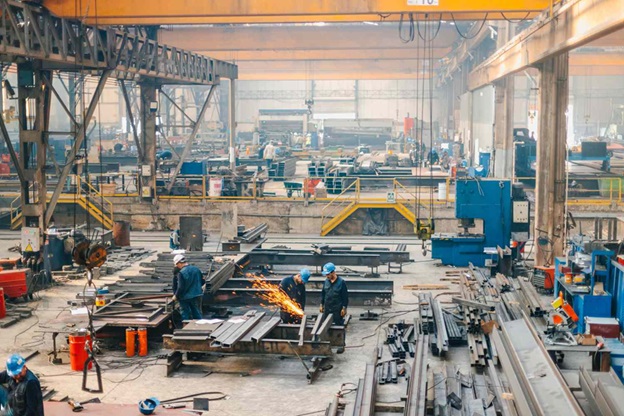Investing in commercial properties in St. Kilda, Armadale, Windsor, and South Melbourne can be an excellent way to generate significant returns. These listed commercial property markets host many hot commercial properties through which investors can diversify their asset portfolio. While the ROI from commercial properties across Melbourne is highly assuring, it requires in-depth knowledge to navigate the market successfully. Here we look at the commercial property market around Melbourne broadly.
Types of Commercial Properties
Retail Properties: These are commercial buildings used to sell services or goods to the public. They include malls, shopping centres, standalone stores and more. With the right tenants, commercial properties act as a great source of passive income for property owners.
Office Properties: Office properties are buildings used for professional services such as accounting firms, law firms and other businesses. These properties can range from small buildings to large ones.
Industrial properties include distribution centres, manufacturing plants and warehouses. Industrial properties are distinct from other commercial properties in that they generally have large open spaces and high ceilings. They are used for the production and storage of goods. Industrial properties are more challenging to manage than others.
Multifamily Properties: Multifamily properties are townhomes or apartment buildings used for residential purposes. These properties can be a stable income source in urban areas.
Hospitality Properties: Hospitality properties include restaurants, motels and lodging establishments. With the right location, these properties can attract many potential investors.
Mixed-Use Properties: These include properties that combine multiple uses, such as hospitality spaces, offices, residential and others. These properties offer a range of investment opportunities and cater to a diverse range of customers or tenants.
How to Invest in Commercial Properties Rationally?
Commercial properties in and around Melbourne offer many opportunities. However, your investment can become fruitful only if you approach the market methodically. Some key factors must be considered when investing in commercial properties to ensure convincing returns. Here’s how you should evaluate the market to make a rational investment.
Market Trends: Investors should closely study market trends before investing in commercial properties in Melbourne, St. Kilda, Caulfield and other hot markets. Market trends include economic state, supply and demand and interest rates. These factors affect the market’s current state; thus, analysing them provides a vague picture of future trends. Investors should also consider potential factors that can impact future occupancy rates.
Location: The location of the property significantly impacts property evaluation and rental income. When investing in commercial properties, one must look for areas with high demand and strong economic growth. Urban centres are always an easy target for investors due to their suitable location.
Cash Flow: The possibility of a stable cash flow is an encouraging factor behind any commercial real estate investment. Before investing, investors should evaluate the potential rental income and other cash-generating sources, such as advertising and parking fees from the commercial property.
Financing Options: Financing options must be evaluated when investing in commercial properties. Investors should assess financing options such as private equity or traditional loans for purchasing a commercial property. Besides, it is equally important to factor in potential risks associated with each financing option (both short- and long-term).
Occupancy Rates: Occupancy rates are indicators of demand and supply. High occupancy rates mean a strong market, which increases potential rental income and the overall value of the commercial property. Local occupancy rates indicate low demand and suggest additional promotional efforts to attract new tenants.
Popular Strategies for Investing in Commercial Properties
Direct Investment: Investors buy or lease a commercial property themselves and manage it as the sole owner of direct investment. This type of investment gives complement control over the commercial property purchased or leased. Direct investment integrates large investments from single investors, so it is suitable for seasoned investors with resources to manage the property and knowledge about the market. The potential for returns is higher, and so are the risks.
Investing in commercial properties in popular markets such as Melbourne real estate requires various investment strategies. Both awards and risks are associated with investment strategies, so investors should assess their options and choose a suitable plan that aligns with their goals.
REITs: A real estate investment trust (REIT) allows investors to own shares instead of the concerned property. Using REIT, investors can invest in apartments, office buildings, hotels and shopping centres. This investment offers benefits such as investment diversification, dividend yields and liquidity. You should watch out for management fees and market fluctuations in this type of investment.
Crowdfunding: Crowdfunding is a type of commercial property investment that allows investors to earn returns depending on the fraction of their contribution to the overall investment. Crowdfunding is done by raising capital from a large number of investors, which is used to buy or lease a commercial property. Investment from large investors eases the financial strain and minimises the risk. However, proper research and due diligence are necessary to ensure a safe investment.
Syndications: Syndications mean pooling money from different investors for purchasing a commercial property. The returns are based on the initial investment of each investor. Syndication investment divides both the profits and losses of a commercial venture among the investors. This allows investors to purchase larger, more complex commercial properties that are tough for a single investor to afford. Trust among investors is a must for syndications to work.



